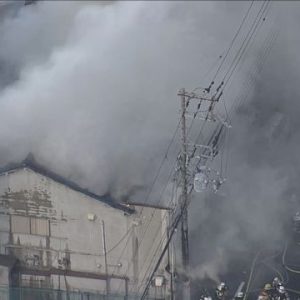Boris Johnson has attacked the growing scourge of ‘thought police’ in Sir Keir Starmer’s Britain, comparing it to ‘the Soviet Union at its worst’.
Writing in today’s Daily Mail, the former prime minister says investigations by police into comments on social media come ‘straight out of 1980s Romania, and the horrible curtain-twitching culture by which people reported on their friends – even their family members’.
It comes amid an increasing backlash over ‘non-crime hate incidents’, where already overstretched officers probe comments and actions not considered serious enough to constitute an offence.
The issue was thrust into the spotlight this week when two Es𝑠e𝑥 police officers visited newspaper columnist Allison Pearson following a complaint about a social media post from a year ago, which has since been deleted.
Ms Pearson says she has not been told which message generated the accusation, or who made it. Mr Johnson said that was ‘obviously wrong, and tyrannical, and redolent of the Soviet Union at its worst’.
‘The police should clearly abandon immediately their investigation into this deleted tweet,’ he said.
‘The whole thing would be a complete joke, if it were not so serious for Allison Pearson – and for all of us living in Starmer’s Britain today.’
The Free Speech Union has branded non-crime hate incidents (NCHIs) as ‘thought policing’ as it was revealed they have been used to investigate children as young as nine.


Sir Keir this week backed their use, prompting Mr Johnson to attack the PM’s ‘deathless skill in plonking himself on the wrong side of the argument’.
‘If someone doesn’t like what you have said, you can be done for a non-crime hate incident, or worse, and be damned for ever. Isn’t it a nightmare?
‘It’s certainly a disaster for policing, because good officers are having to waste their time on this nonsense, so that they can’t attend burglaries; and every hour that they spend scanning the ether for ‘offensive’ tweets is an hour they can’t spend on the beat deterring the criminal gangs who swipe your mobile phone.’
He adds: ‘Inch by inch we are losing our place on the moral high ground. Our enemies can detect this erosion of old British freedoms, and they will unhesitatingly exploit it… We are seeing a relentless and sometimes brutal drowning-out of those who dare to dissent.’
Tory leader Kemi Badenoch told The Daily Telegraph: ‘We need to stop this behaviour of people wasting police time on trivial incidents because they don’t like something, as if they’re in a nursery. It’s like children reporting each other.’
Chancellor Rachel Reeves agreed, saying that investigating children’s playground-style comments was not ‘the best use of police time’.
Officers should focus on ensuring ‘towns and high streets are safe’ instead, she added.
A former Director of Public Prosecutions also warned that a suggestion that police should record yet more ‘trivial’ NCHIs would be a ‘terrible mistake’. Lord Macdonald urged Home Secretary Yvette Cooper not to weaken restrictions on police over how they make use of the reports.
Ms Cooper is thought to want to make it easier for police to use NCHIs for anti-Semitic and Islamophobic abuse, but Lord Macdonald warned that ramping up their use could have ‘real world consequences’ for potentially innocent individuals.


Free speech campaigners also say watering down the restrictions, first introduced by ex-home secretary Suella Braverman last year, could have harrowing effects.
Doctors, vicars and social workers have been among those in positions of authority probed for allegations such as misdiagnosing patients or saying it is a religious sin to be gay. NCHIs are technically reserved for cases ‘clearly motivated by intentional hostility’ with a real risk of escalation ‘causing significant harm or a criminal offence’.
But anyone reported for one can have the details passed on to a prospective employer under an enhanced criminal record check.
Last night No 10 said it was important for police to spend their time protecting the public, but added that the recording of NCHIs was used as a tool to prevent escalation and future crimes.
But Jake Hurfurt, from the privacy campaign group Big Brother Watch, said: ‘Forces must make sure they protect freedom of expression and privacy by only recording NCHIs when absolutely necessary.’
He added: ‘Plans from the Home Secretary to widen the scope for NCHI recording are alarming, and she should press pause to consider the chilling effect such a move could have on free speech in the UK.’ Earlier this week it emerged that 45 police forces recorded 13,200 NCHIs in the 12 months to June this year. They included investigating a nine-year old girl who called a fellow pupil a ‘retard’, and a doctor accused of misdiagnosing someone because they were bi𝑠e𝑥ual.
Another person complained to police that he had been removed from a friendship social media group because he was ‘too much and exhausting’.



